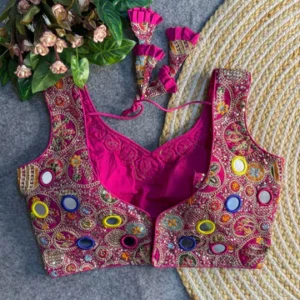
Finding love has never been more complex. Despite unprecedented access to potential partners through dating apps and social media, many singles report feeling more frustrated and disconnected than ever. The very tools designed to simplify romance have introduced new layers of confusion, anxiety, and unrealistic expectations that make authentic connections increasingly rare.
Understanding these modern dating challenges can help you navigate today’s romantic landscape more successfully. Let’s explore why contemporary courtship feels so difficult and what you can do about it.
The Overwhelming Nature of Endless Options
Dating platforms promise to solve the age-old problem of meeting compatible people. With thousands of profiles at your fingertips, finding “the one” should be easier than ever. Yet research reveals that having too many choices often leads to decision paralysis and decreased satisfaction with whatever choice you eventually make.
This abundance mentality affects how people approach relationships. Instead of investing time and energy into getting to know someone deeply, many daters keep one foot out the door, constantly wondering if someone better might be just a swipe away. The fear of settling prevents them from settling down, even when they’ve found someone genuinely compatible.
The gamification elements built into dating apps compound this problem. Push notifications, match counters, and swipe mechanics trigger the same reward pathways as slot machines. Users become addicted to the dopamine hit of new matches rather than pursuing meaningful conversations with existing connections.
Digital Communication Changes Everything
Texting has replaced face-to-face conversation as the primary mode of early relationship communication. While this offers convenience and can reduce anxiety for introverts, it eliminates crucial elements that help people assess compatibility and build emotional bonds.
Without vocal tone, facial expressions, and body language, messages are easily misinterpreted. A delayed response might signal disinterest, or it might mean someone is simply busy at work. This ambiguity creates unnecessary anxiety and leads to overthinking every interaction.
People also craft idealized versions of themselves through carefully chosen photos and witty messages. When you finally meet in person, the reality rarely matches the digital persona. This disconnect leaves many feeling disappointed and questioning whether genuine chemistry exists online at all.
Social Media Creates Impossible Standards
Instagram feeds overflow with couples on romantic getaways, elaborate proposal videos, and anniversary celebrations that look straight out of a fairy tale. These highlight reels create unrealistic expectations about what relationships should look like, causing people to feel inadequate about their own romantic experiences.
The pressure to document and share relationship milestones shifts focus from private connection to public performance. Couples feel compelled to prove their happiness through posts and stories, sometimes prioritizing how their relationship appears over how it actually feels.
Constant exposure to others’ romantic lives also triggers unhealthy comparisons. Seeing an ex’s new relationship or friends’ engagement announcements can generate feelings of FOMO and inadequacy that interfere with present relationship satisfaction.
Economic Realities Complicate Traditional Timelines
Financial pressures significantly impact modern relationships in ways previous generations didn’t experience. Student loan debt, rising housing costs, and economic uncertainty make traditional relationship milestones—moving in together, marriage, buying a home—feel financially impossible for many young adults.
The gig economy and remote work offer flexibility but create scheduling challenges that complicate dating. When both people have irregular hours or travel frequently, maintaining consistent connection becomes difficult.
Extended adolescence has also shifted relationship timelines. People spend their twenties and even thirties establishing careers and personal identity before seriously considering long-term partnership. While this creates opportunities for personal growth, it can also lead to analysis paralysis when choosing life partners.
Building Authentic Connections Despite Modern Obstacles
Successful daters learn to work with these challenges rather than against them. They use dating apps strategically, limiting their active conversations to avoid overwhelm and prioritizing in-person meetings to assess real chemistry.
Setting boundaries around social media consumption helps maintain realistic expectations. Some couples choose to keep their relationships more private, focusing on their actual connection rather than curating content for others.
Financial transparency early in dating helps align expectations about timelines and lifestyle choices. Having honest conversations about career goals, debt, and financial priorities prevents future conflicts and disappointment.
Finding Love in a Complicated World
Modern romance may feel more challenging than in previous eras, but meaningful connections are still possible. The key lies in recognizing how digital tools can both help and hinder genuine relationship building.
Success comes from approaching dating with clear intentions, realistic expectations, and a commitment to authentic communication. While technology can facilitate introductions, lasting relationships still require the same fundamental elements they always have: patience, vulnerability, and genuine interest in getting to know another person’s true self.
By understanding these contemporary challenges and developing strategies to navigate them, you can find the meaningful connection you’re seeking, even in our complicated digital age.





